第41章 A POOR MAN'S TALE OF A PATENT(2)
My wife's brother, George Bury of West Bromwich (his wife unfortunately took to drinking, made away with everything, and seventeen times committed to Birmingham Jail before happy release in every point of view), left my wife, his sister, when he died, a legacy of one hundred and twenty-eight pound ten, Bank of England Stocks. Me and my wife never broke into that money yet. Note. We might come to be old and past our work. We now agreed to Patent the invention. We said we would make a hole in it - I mean in the aforesaid money - and Patent the invention. William Butcher wrote me a letter to Thomas Joy, in London. T. J. is a carpenter, six foot four in height, and plays quoits well. He lives in Chelsea, London, by the church. I got leave from the shop, to be took on again when I come back. I am a good workman. Not a Teetotaller; but never drunk. When the Christmas holidays were over, I went up to London by the Parliamentary Train, and hired a lodging for a week with Thomas Joy. He is married. He has one son gone to sea.
Thomas Joy delivered (from a book he had) that the first step to be took, in Patenting the invention, was to prepare a petition unto Queen Victoria. William Butcher had delivered similar, and drawn it up. Note. William is a ready writer. A declaration before a Master in Chancery was to be added to it. That, we likewise drew up. After a deal of trouble I found out a Master, in Southampton Buildings, Chancery Lane, nigh Temple Bar, where I made the declaration, and paid eighteen-pence. I was told to take the declaration and petition to the Home Office, in Whitehall, where I left it to be signed by the Home Secretary (after I had found the office out), and where I paid two pound, two, and sixpence. In six days he signed it, and I was told to take it to the Attorney-General's chambers, and leave it there for a report. I did so, and paid four pound, four. Note. Nobody all through, ever thankful for their money, but all uncivil.
My lodging at Thomas Joy's was now hired for another week, whereof five days were gone. The Attorney-General made what they called a Report-of-course (my invention being, as William Butcher had delivered before starting, unopposed), and I was sent back with it to the Home Office. They made a Copy of it, which was called a Warrant. For this warrant, I paid seven pound, thirteen, and six.
It was sent to the Queen, to sign. The Queen sent it back, signed.
The Home Secretary signed it again. The gentleman throwed it at me when I called, and said, 'Now take it to the Patent Office in Lincoln's Inn.' I was then in my third week at Thomas Joy's living very sparing, on account of fees. I found myself losing heart.
At the Patent Office in Lincoln's Inn, they made 'a draft of the Queen's bill,' of my invention, and a 'docket of the bill.' I paid five pound, ten, and six, for this. They 'engrossed two copies of the bill; one for the Signet Office, and one for the Privy-Seal Office.' I paid one pound, seven, and six, for this. Stamp duty over and above, three pound. The Engrossing Clerk of the same office engrossed the Queen's bill for signature. I paid him one pound, one. Stamp-duty, again, one pound, ten. I was next to take the Queen's bill to the Attorney-General again, and get it signed again. I took it, and paid five pound more. I fetched it away, and took it to the Home Secretary again. He sent it to the Queen again. She signed it again. I paid seven pound, thirteen, and six, more, for this. I had been over a month at Thomas Joy's. I was quite wore out, patience and pocket.
Thomas Joy delivered all this, as it went on, to William Butcher.